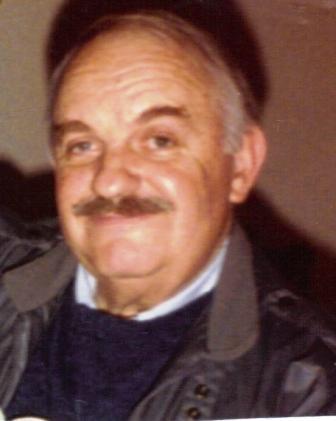Don Locke: Looking Through Bifocals
Barry Manilow gave us the song, "I WRITE THE SONGS THE WHOLE WORLD SINGS," a few years back.
It's sad to think how empty our lives would be were it not for song writers and songs. Lines from an old Negro refrain tell us: "Without a song, the day would never end. Without a song the row would never bend . . . without a song . . ."
Song writers an singers have a sort of symbiotic relationship: you scratch my back; I'll scratch yours. Unless the performers become superstars, most song writers usually make more money than singers do. Royalties.
Of course there are singers that wrote most of their songs. Gene Autry wrote most of his; Roy Rogers didn't. Most singers, however, probably get most of their songs pitched to them by writers and producers. As a general rule, writers can't give a song the right "hook" that a skilled performer can. There were probably better voices than that of Hank Williams, but his style had that unique hook . . . That certain unknown quantity that set it apart. Hank Junior sounds not much like his dad. However, Hank III sounds an awful lot like his old granddaddy Hank . . . the original.
Once Henry Cannon was flying his wife Sara Cannon (better known as Minnie Pearl) to a show. Hank Williams, who wrote most of his own songs, and Little Jimmy Dickens, whom Hank had nicknamed "Tader," were along. Hank asked Jimmy if he'd had a hit lately. Jimmy told him he hadn't. Hank said, "Minnie, hand me a pencil and paper back here, I want to write Tader a hit song." in about five or six minutes Hank finished it and handed it to Jimmy. "If you'll take this and record it I guarantee it will be a hit," Hank told him. Jimmy didn't get around to recording it right off. One day Hank hollered at Jimmy from across the street, "Hey Tader, I recorded your song." The song was, "Hey Goodlookin," one of Hank's biggest hits. Jimmy said, "Thanks Hiram."
Writers acquire songs in many ways . . . sometimes strange ways. Lefty Frizell wrote one of his biggest hits from a jail cell. It was, "I love you, I'll prove it a thousand ways." His wife had just left him. Alcohol. Him.
After a stint in the Navy, Don Gibson came home to Shelby, North Carolina. A starving songwriter and performer, he played local gigs and radio stations. He moved to Knoxville and landed a spot on the TENNESSEE BARNDANCE. Don was still relatively unknown until one day he sat in his trailer tuning his guitar. In time to his satisfaction he strummed the last four strings; a time began to shape in his mind. He kept on strumming for a while. Those four strings in the open position said to him: "I love you so." Then he added, "much it hurts me;" then, "darlin' that's why I'm so blue." It became one of his biggest hits.
Once a woman fan kept pestering Gene Autry, wanting to marry him. Gene wrote her back, telling her he was a happily married man and to quit bothering him. Finally he received a last letter from her that promised, "I'll not bother you again. But Gene, I want you to know that you will always be the only star in my blue heaven." Gene got pencil and paper and the result was one of his smash-hits: "You're The Only Star In my Blue Heaven (and you're shinin' just for me)."
Kentuckian Tom T. Hall was happy just being a Nashville song writer. "The money is real good," he said, "and I don't have to leave my house and go on that man-killing road." But Tom T. was such a good story teller in song, and his voice had that "hook," friends, producers and the like kept ding-donging him to cut an album. The rest is history. He stayed home no longer and did what he liked to do best, and that is write songs. I'm real glad he didn't stay home, aren't you?
My. I notice I've written about country performers mostly. Using apologize. They're the only ones I know anymore.
"That field of corn would never see a plow. That field of corn would be deserted now. A man is born but he's no good nohow without a song.
Kindest regards . . .
- Log in to post comments



























